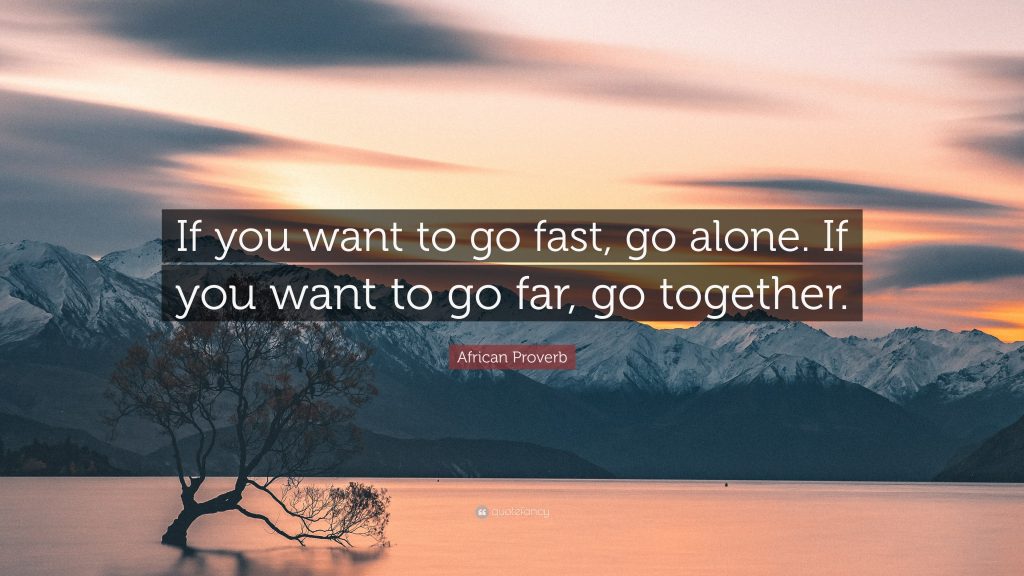Chapter 16: Group Communication & Decision-Making
16.1 Why You Can’t Pass a Simple Quiz
Try this little “Name the Inventor” quiz (with the date of invention included).
Who invented:
-
The printing press? (1450)
-
The cotton gin? (1793)
-
The sewing machine? (1850)
-
The telephone? (1876)
-
The light bulb? (1879)
-
Radio? (1901)
-
The airplane? (1903)
-
Television? (1928)
-
The photocopier? (1949)
-
Videotape? (1953)
-
The cell phone? (1973)
-
The compact disc (CD)? (1982)
-
The DVD? (1995)
-
Blu-Ray Discs? (2006)
-
Tablet computers?
How did you do? You probably got three or four of the first seven, but I’m pretty sure you didn’t get a single answer after #8. Why is that? Why does there seem to be a cutoff around 100 years ago?
I think it’s because the age of the single inventor is over. The light bulb is not particularly complicated, so it was possible in 1879 for one person (Thomas Edison) to invent it by himself … sort of. But could one person have possibly invented the cell phone? No way.
Here are the simplistic answers:
-
Johannes Gutenberg
-
Eli Whitney
-
Isaac Singer
-
Alexander Graham Bell
-
Thomas Edison
-
Guglielmo Marconi
-
Orville & Wilbur Wright
-
Philo Farnsworth (depending on who you ask; other possible answers are Vladimir Zworykin, or John Logie Baird)
-
Xerox
-
RCA
-
Motorola
-
Sony
-
Philips, Sony, Toshiba and Panasonic
-
Sony, Dell, HP, LG, 20th Century Fox, Hitachi, Panasonic, Mitsubishi, Philips, Pioneer, Samsung, Sharp, TDK & Technicolor USA
-
Inventions, in other words, have become too complicated for any individual person to create by themselves. The pace of invention hasn’t slowed, but now the work is done in groups and, more recently, in collaborations between rival companies.
Speaking of groups, let’s have a closer look at the inventor of the light bulb: Edison. Nine other inventors developed incandescent bulbs before he did; those bulbs just didn’t work very well or last long, so Edison really just discovered the right kind of filament to use. And he had a group of assistants working with him. He may have been the brains of the operation, but he couldn’t have done it without his team. Even those “individual” inventors at the beginning of the list, then, aren’t as individual as they appear.
As life gets more complex, more and more things must be done in teams: a patient might have a team of a dozen doctors; a “solo” musician like Taylor Swift works with teams of musicians, dancers, and producers; television shows and movies are made by teams; verdicts are reached by juries; and even individual athletes have teams of trainers and coaches behind them. If you’re a college student, probably a significant portion of your grades has been earned in groups.
This is not good news for everyone. The term “grouphate” refers to the negative feelings people have about having to work in groups.[1] Many students wish they could escape group work, and are unhappy that their grade depends on others who never seem to pull their weight. The economy has been steadily shifting away from the idea of working for a company to a “gig economy,” where people can earn money on their own — contractors working with rideshare or delivery companies, for example, but not for them — avoiding the need for endless workday meetings and having to get along with annoying coworkers. And when COVID hit, some people welcomed the order to work from home and avoid congregating in groups.
Committees have always had a reputation for making bad decisions, and the collective term for political leadership in America, “Congress,” has abysmally low approval ratings (as the old joke goes, if the opposite of “pro” is “con,” then the opposite of progress is congress). People have long suspected that when individuals get together, instead of pooling their wisdom and getting collectively smarter, maybe it goes the other way. In the film Men In Black, Will Smith’s character finds out that New York is full of aliens from around the galaxy, and he asks Agent K (Tommy Lee Jones) why they don’t tell people about it, adding “People are smart; they can handle it.” Agent K corrects him: “A person is smart. People are dumb, panicky, dangerous animals and you know it.”
Still, the need to get along with others, and produce work with them, will never go away. Working from home during the pandemic didn’t remove the need to collaborate with others: it just meant that people had to learn how to collaborate remotely. Indeed, COVID proved that humans suffer when they can’t be around other people.
The bad reputation of committees is inaccurate, by the way: although sometimes groups do slip into unfortunate habits, on the whole they have been found to make better decisions than individuals. There’s a reason why so many important decisions — from hiring university presidents to city planning to reaching verdicts to deciding who wins awards — are made by groups. Groups can collectively process and remember more information than individuals, they keep their misbehaving members in line, and they help balance out any biases. As an African proverb goes: “If you want to go fast, go alone. If you want to go far, go together.”

- Soreson, S. (1981, May). Grouphate. Paper presented at the International Communication Association Association, Minneapolis, MN. ↵

